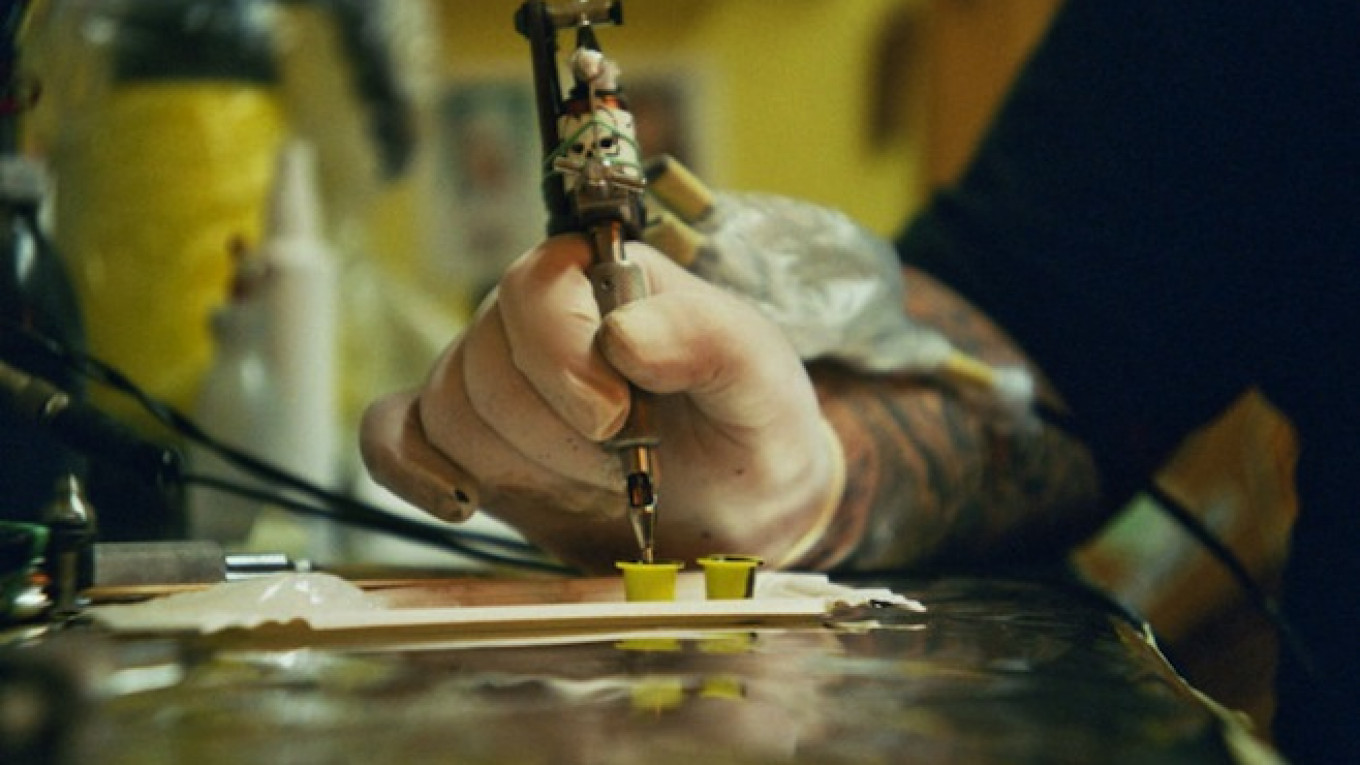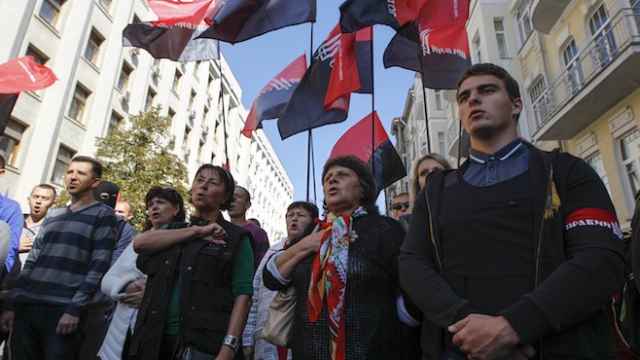A court in central Russia has ordered a local man to cover up during summertime in a bid to conceal his swastika tattoo from public view.
The man from the city of Galich in the Kostroma region got the "tattoo in the shape of a Nazi swastika" while serving time in one of the local prisons, the regional prosecutor's office said Wednesday in an online statement.
This summer, following his release from prison, he "carried out a public demonstration of [his tattoo] inside administrative buildings, on Galich streets, as well as on local public transportation," the statement added.
Exhibiting Nazi symbols in public is an offense under Russian law, punishable by sanctions that range from a fine to 15 days in prison.
The law also demands that the "object of the administrative offense" be confiscated — a requirement that was apparently difficult to enact in this case.
Instead, a Galich city court ruled that the man be "assigned the responsibility of wearing clothing during summertime that covers up the said tattoo," the prosecutors' statement said.
The court also fined the man 1,000 rubles ($22).
A Message from The Moscow Times:
Dear readers,
We are facing unprecedented challenges. Russia's Prosecutor General's Office has designated The Moscow Times as an "undesirable" organization, criminalizing our work and putting our staff at risk of prosecution. This follows our earlier unjust labeling as a "foreign agent."
These actions are direct attempts to silence independent journalism in Russia. The authorities claim our work "discredits the decisions of the Russian leadership." We see things differently: we strive to provide accurate, unbiased reporting on Russia.
We, the journalists of The Moscow Times, refuse to be silenced. But to continue our work, we need your help.
Your support, no matter how small, makes a world of difference. If you can, please support us monthly starting from just $2. It's quick to set up, and every contribution makes a significant impact.
By supporting The Moscow Times, you're defending open, independent journalism in the face of repression. Thank you for standing with us.
Remind me later.






